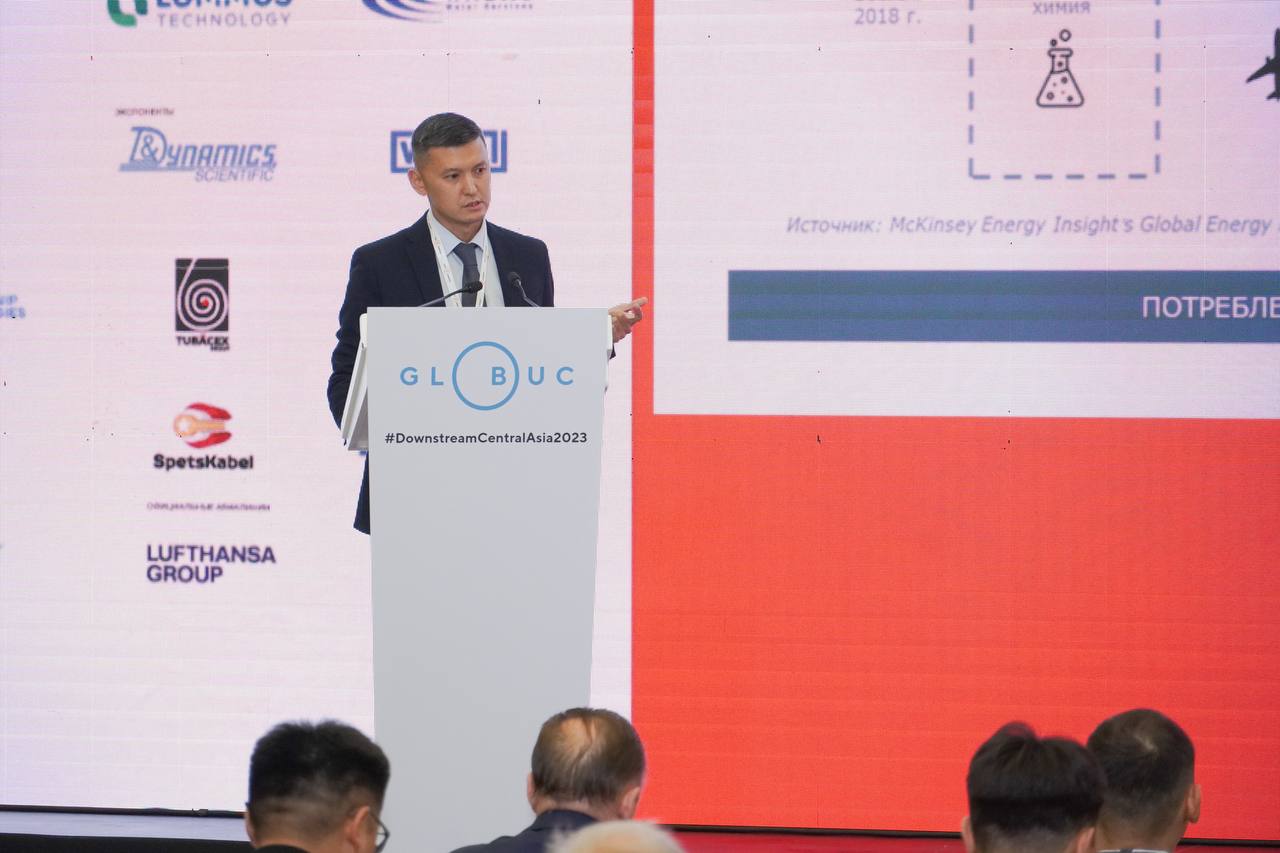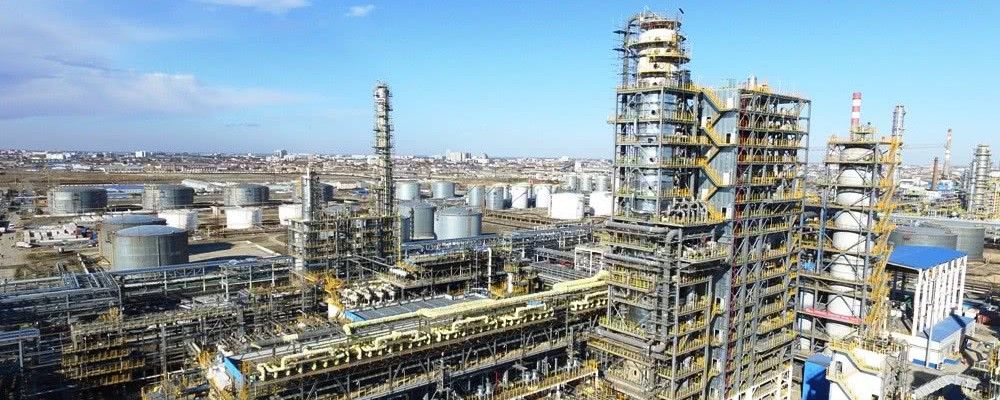- Olzhas Bektenov: instead of selling feed gas, we will be producing Polyethylene increasing, added value 20 times (News) 2024-04-19
- Signing of Memorandum: KMG PetroChem LLP and universities join forces to solve the problems of providing highly qualified personnel for oil and gas chemical industry (News) 2024-03-26
- KMG PetroChem LLP held public hearings in Atyrau region (News) 2024-02-23
- KMG PetroChem LLP presented prospects for the development of petrochemicals in Kazakhstan (News) 2024-02-21
- Hungary and Kazakhstan plan to cooperate on petrochemistry (News) 2024-02-07
- THREE-PARTITE MEETING ON THE POLYETHYLENE PROJECT WAS HELD IN CHINA (News) 2024-01-30
- Published: 14 September 2023

The 10th Anniversary Globuc Conference was held in Almaty on September 13-14 to discuss the prospects of petrochemical development in Central Asia and the Caspian Region. The conference was attended by more than 300 representatives of leading international technology and engineering companies from Europe, USA, East Asia, Turkey and the Middle East.
The key focus of discussions was petrochemical integration, which is seen as a priority for the region's development. Diyaz Diyanov, Deputy Chairman of the Management Board of KMG PetroChem LLP, made a presentation to the conference participants on the current state of petrochemical industry in Kazakhstan and a number of promising projects.
The speaker noted that petrochemical facilities will be the main consumers of produced hydrocarbons (oil and gas) in the world in the next decade. This is because more than 95 per cent of all manufactured goods are directly or indirectly dependent on petrochemicals, from part of the hull of transatlantic airliners to medical devices implanted in the human body. The chemical industry plays a key role in the economy of developed countries contributing significantly to GDP.
According to D. Diyanov, Kazakhstan has the potential for the development of the NGH industry. The competitive advantage of Kazakhstan is the availability of raw materials extracted mainly from large deposits (Tengiz, Kashagan, and Karachaganak), which are characterized by a high content of ethane, propane, and butane.
For reference: In Kazakhstan, to obtain 1.6 million tons of ethane, it is necessary to process 9 billion m³ of dry gas (the molar fraction of ethane is about 14% in the component composition of Tengiz dry gas). Whereas in neighboring countries, to obtain 2-2.5 million tons of ethane, 45 billion m³ of gas needs to be processed (with a molar fraction of ethane ranging from 3% to 5%).
The national company «KazMunayGas» intends to monetize the available raw materials and provide the country with the main polymers that are in high demand both in Kazakhstan and globally. This includes polypropylene, polyethylene, and potentially in the future, TPA/PET and the highly sought-after nitrogen fertilizer, carbamide.
For reference
KMG PetroChem LLP (former KLPE LLP) is a 100% subsidiary of JSC NC «KazMunayGas». The company implements and coordinates petrochemical projects in KMG Group. The scope of KMG PetroChem's activities includes the future polyethylene plant and Gas Separation Complex, as well as prospect petrochemical projects such as TPA/PET and Urea.
Polyethylene is the most demanded polymer in the world, with an annual consumption of more than 100 million tonnes per year or 32% of total polymer consumption. The high demand for polyethylene is due to the fact that this polymer is used to manufacture a large number of household and industrial products and goods, such as polyethylene pipes, construction and packaging materials, automotive components and is even used for the inner lining of spaceships.
PET is also a polymer in demand worldwide. It has high mechanical strength and impact resistance, resistant to abrasion and repeated tensile and bending deformations, unaffected by water. The material is not affected by organic solvents and operating temperature range from -40 °C to +60 °C. PET has a wide range of applications: plastic packaging for beverages, food packaging, fabrics, technical threads, X-ray and video film, automotive components, medical products.
Urea is the most in-demand nitrogen fertilizer in Kazakhstan and its demand is met mainly through imports. It is easy to store, transport, and it greatly increases yields because it is easily absorbed by plants.
Within the framework of the Forum, representatives from KMG PetroChem LLP conducted several business meetings with leading licensors in the field of petrochemistry. Among the attendees were major players such as Chevron Phillips Chemical, Univation Technologies, Lummus Technology, and Honeywell UOP.
The discussions primarily centred on cooperation within the petrochemical industry. Representatives dived into the current phase of the Polyethylene project implementation and explored prospects for upcoming projects, such as TPA/PET and Urea.
Having in-house polymer production facilities in Kazakhstan presents new opportunities for SMEs. These businesses can now start producing finished goods for both domestic and industrial use. Consequently, this will generate new employment opportunities and elevate the quality of life for the nation's residents.
Media RelationsThis email address is being protected from spambots. You need JavaScript enabled to view it.
Phone: +7 (7172) 613-224
